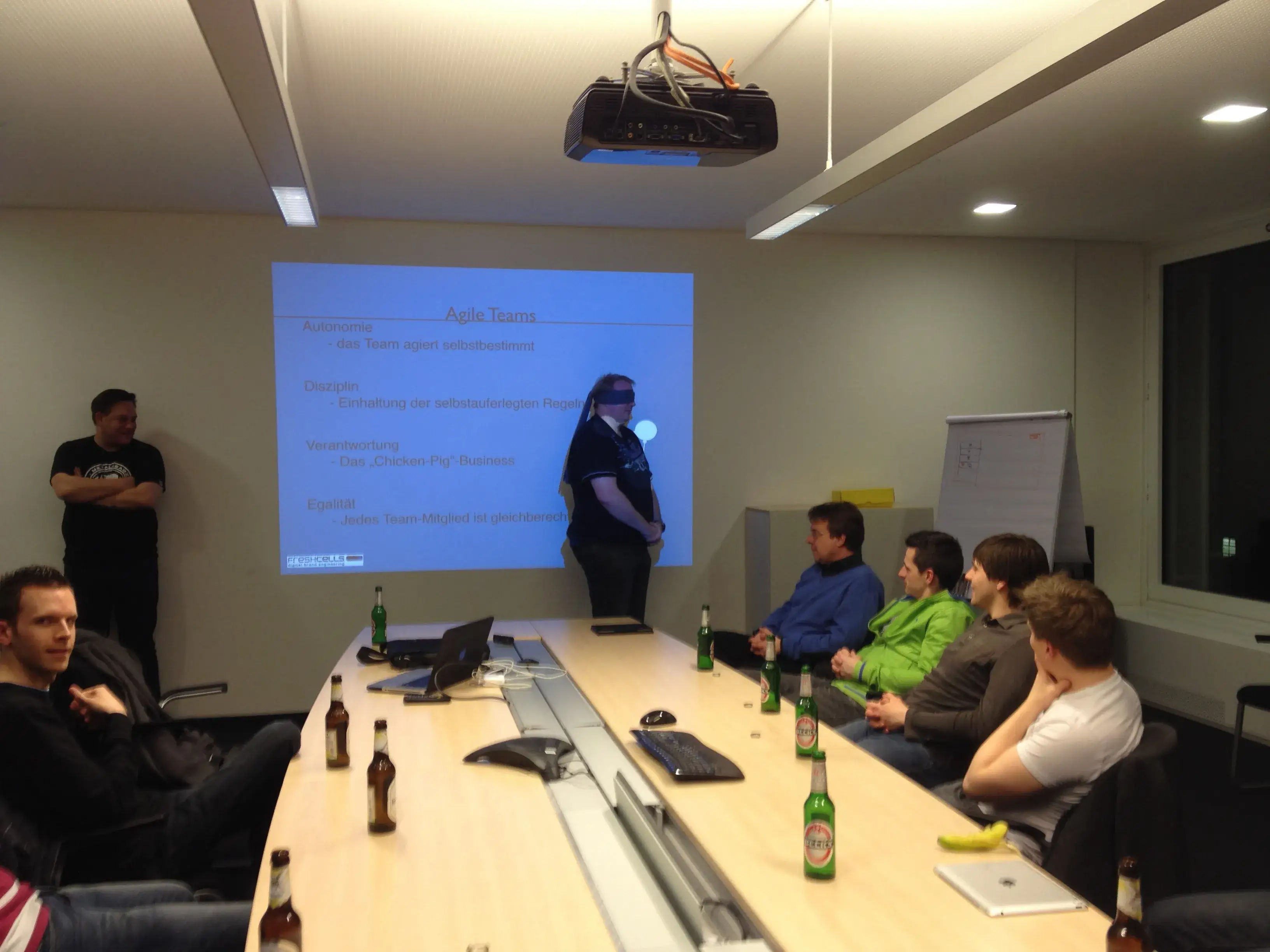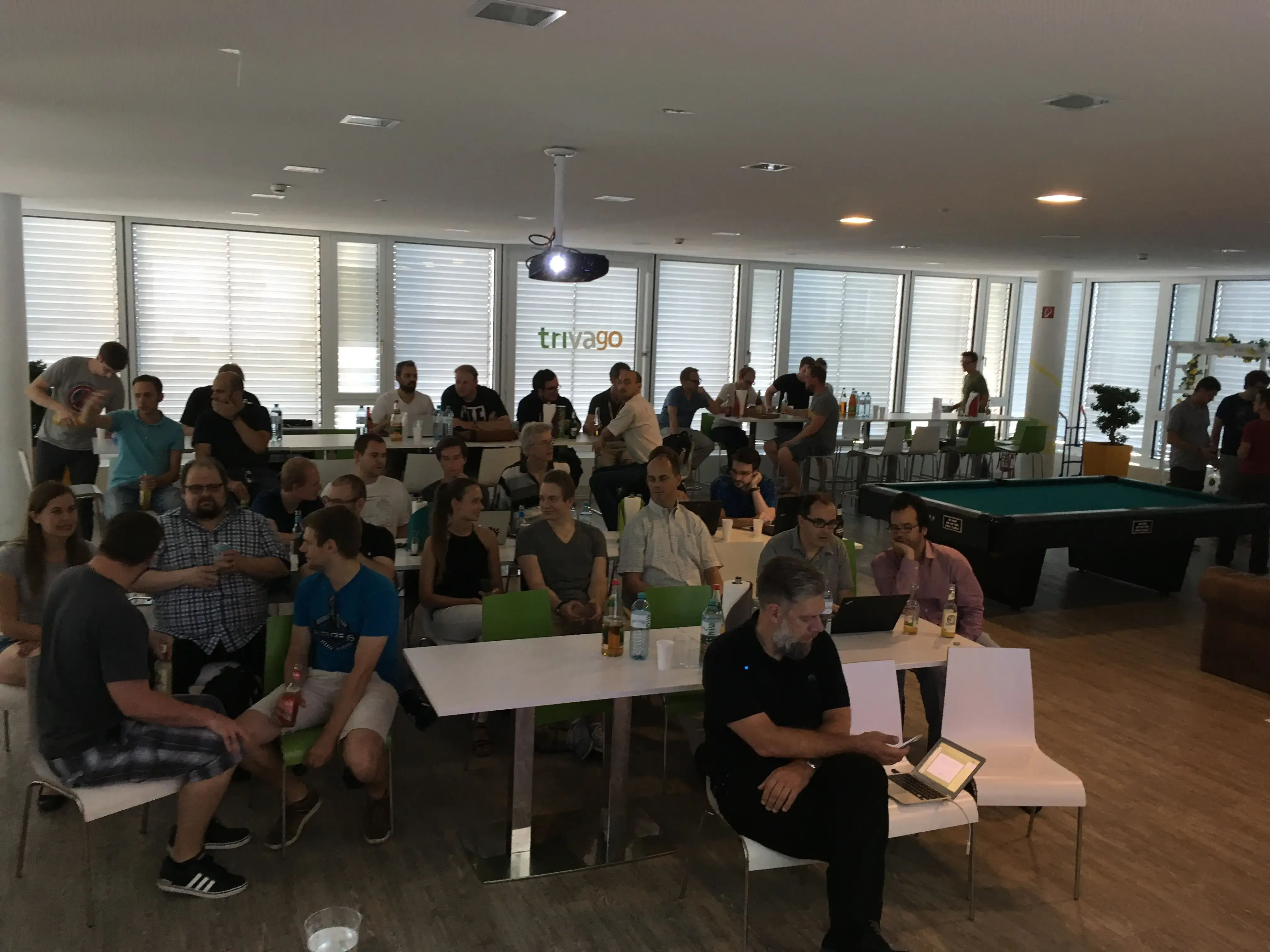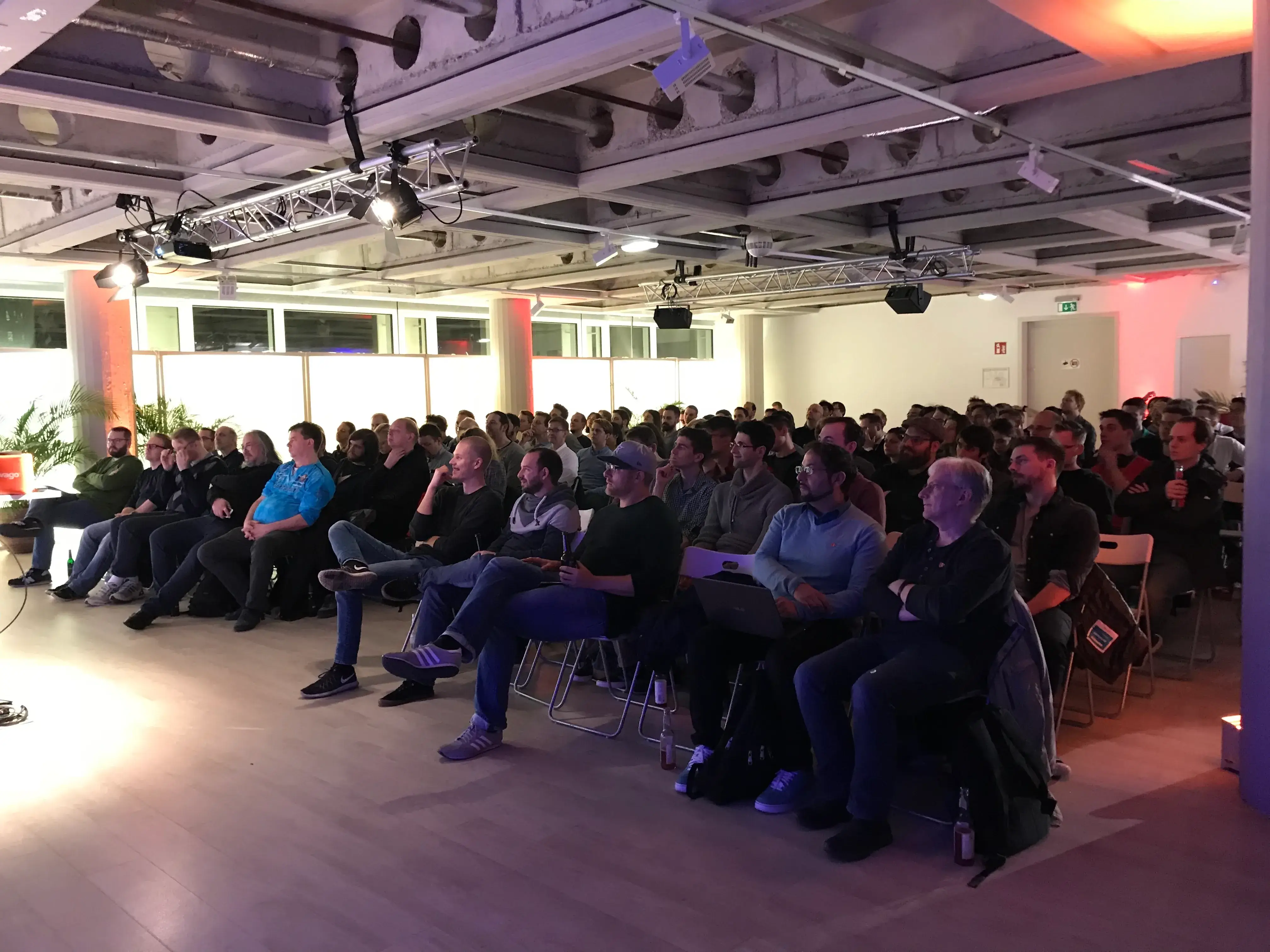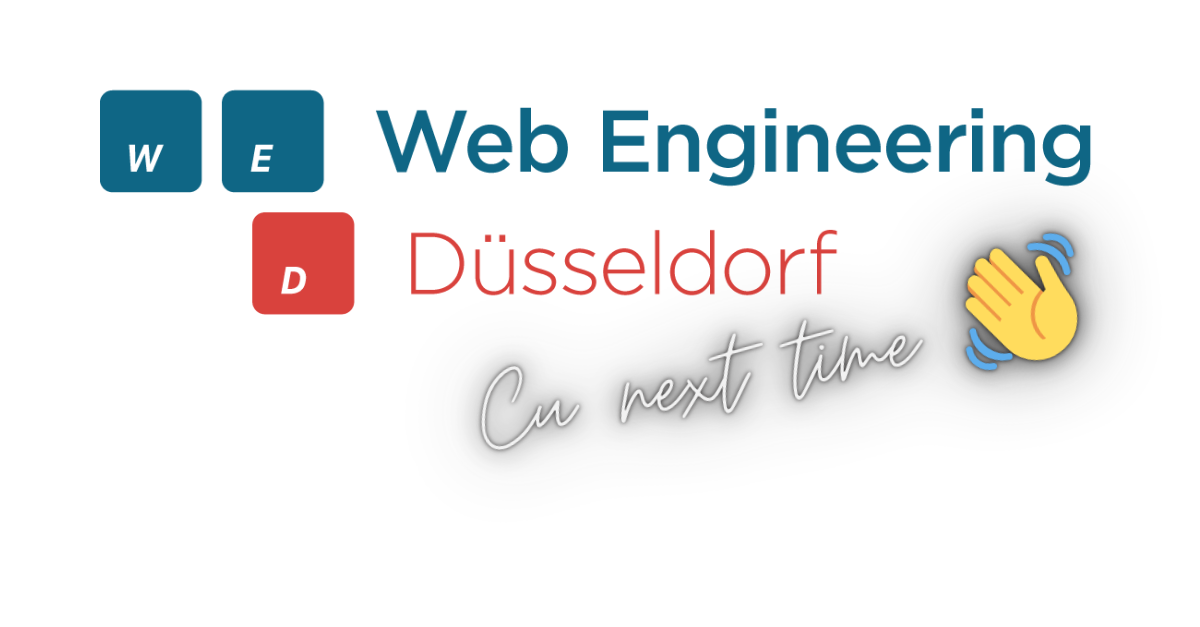For the last 11 years (2012 - 2023), I was the main organizer of the local tech meetup Web Engineering DUS in Düsseldorf, Germany. Over this timespan, we
- organized over 90 meetups (including a three-year pandemic break)
- collaborated with 16 different local companies
- provided over 120 speakers a stage
- did 3 group renamings (PHP Usergroup DU / KR / D → PHP Usergroup Düsseldorf → Web Engineering Düsseldorf)
- and build one of the most prominent and most active meetup groups in Germany with > 4.500 group members
At the end of 2023, my peer Dominik Siebel and I handed over the Meetup ownership to Dario Tilgner to continue to run the meetup with a new perspective, new spirit and a new refreshing approach.
This blog post summarizes critical learnings from the past 11 years of local tech meetup activities.
Learning: Be clear about your motivation to run a meetup
Starting a new side project (e.g., a tech meetup) is tremendous and exciting. You do something new, a new opportunity to get out of your comfort zone and learn something new. You are inspired and motivated to take action and only see the good things. You organize one meetup, two meetups, and three meetups. After getting used to it, you know how to organize meetups. The learning is getting less; the excitement is decreasing, or even worse, it starts to feel like work.
Now, you need clarity on Why you organize and run such a Meetup. This clarity will be your inner drive to continue. Especially in the first sessions, it won’t feel like “a success”. It takes time to spread the word of mouth and get your meetup’s attention. You need a bit of stamina.
For the Web Engineering Meetup, our initial motivations were:
- building our professional network
- getting in touch with software engineering topics next to my day job
- learning and inspiration from others (either technologies or people or experience)
- giving something back to the (local) community
- offering a space for others to learn, experiment, and grow (e.g. in public speaking)
In hindsight, this was all fulfilled, and to get clarity about this was the key factor on why we did this for such a long time. We are grateful for this. We also experienced that our motivation changed a bit over time. It is natural because you get older, get more experience, progress in your professional career, and may change your goals and life situation. Just continue to ask this question regularly: What is my motivation to run the meetup still the same or still aligned with such a tech meetup? If not, think about a change; otherwise, you might drain yourself and half-heartedly run the meetup.
Learning: Build your Organization team, but limit the team size
Organizing a meetup is quite some effort. This effort is often spent voluntarily and in your free time. You can organize one meetup alone. Maybe two or three times, but you won’t be able to run this monthly for a long time alone. Sharing the work with others can make it more manageable and less stressful.
In our case, we were two people managing the Web Engineering Düsseldorf Meetup. I, Andy Grunwald, was primarily responsible for the planning and scheduling (Dates, Announcements, organizing speakers, contacting venues, etc.). My peer, Dominik Siebel, helped a ton onsite, on the evening itself, when the meetup was running (Testing the technical equipment, Entry for attendees, etc.). We had some events where only one of us was available. These were stressful evenings, and you couldn’t enjoy the meetup.
Getting a reliable partner into your organizational team is highly recommended. Three people might also work, but be aware: The more people are actively involved, the more communication effort is required (keeping everyone informed, date alignments, etc.), and everyone’s responsibilities need to be crystal clear. Otherwise, the old saying applies: “If everyone is responsible, no one is responsible.”.
Two people worked pretty well for us.
Learning: Get help from companies
Many meetups cover a professional domain (e.g., tech, software development, IoT) in which companies earn money. Those meetups attract people who are interested in stepping into this domain or are already professionals. This scenario creates a Win-Win situation for you as a Meetup organizer and for companies around who may be a good fit to host your meetup. Use this Win-Win situation to your advantage.
For the Web Engineering DUS meetup, we collaborated with 16 different companies. We started with one company and organized the events in the exact location for multiple years. Later on, we rotated through different companies each month. It had multiple benefits:
- We, the organizers, get to know multiple people and companies
- The attendees get to know other local companies
- It makes the meetup (again) more exciting
- You provide a fair share to other companies as well
- You avoid folks calling your meetup like the ACME Inc. meetup
Get in contact with such companies in your city. Explain what you are planning to do and how they can help. For non-profit Meetups, it is common to ask for
- a place/room to meet (a bigger meeting room or presentation space) with standard equipment like projectors
- food and drinks for the attendees
Companies get a form of (local) employer branding and network with suitable people. From a company perspective, providing some food is (usually) a small cost item, and the offices are there anyway.
Getting active support from a company will free up quite some effort from your organization.
Learning: You don’t need to solve every problem
While running the meetup more often, people will talk to you and raise their feedback or criticism. Things like “It would be great if next time …” or “For the next meetup, can you ensure …” or even “I didn’t like x. Can you do y instead next time?“. The majority of feedback is nice, well-phrased, and well-intentioned.
From our experience, typical topics have been:
- offering parking space
- quality or type of food (e.g., pizza vs. healthy food, full buffet, vegan and gluten-free options)
- (sometimes) experience of the presenter related to public speaking
- Event start time (too early, too late)
You must decide what to tackle and what problem you won’t solve. The longer you run the meetup, the more people will attend. With more people attending, the crowd might get more diverse with more or different expectations. Some things are out of your control. Some things are fine like they are, and you don’t need to tackle everyone’s feedback.
Always remind yourself: You run this non-profit, voluntary, in your free time, and the attendee can learn and get inspired free of charge.
Learning: A high number of attendees might not be the success factor you are looking for
When you start your meetup, you are happy that a few people are attending. Over time, more people get to know your meetup (word of mouth), and the number of attendees per meetup is growing. This is a great feeling because it proves you are onto something.
The same thing happened with the Web Engineering Meetup. We started pretty small, in a normal meeting room with 10 people:

After some meetups, more people joined:

Until our biggest meetup was with ~170 people:

This still feels great. However, the large number of attendees is creating more challenges:
- Finding a suitable location to host the meetup
- The food costs will grow by a lot (and even your local pizza dealer might have trouble serving pizza for that many people)
- The event is getting more anonymous (vs. a true community that knows each other)
- More people you don’t want to welcome at such an event will join (e.g., tech recruiter who makes advertisements)
Ultimately, meetups with such many attendees are significant events and create more problems and work than benefits. They may even go in the wrong direction concerning your meetup- or motivation goals.
At the event itself, it feels great. No doubt. But once you think about the new challenges it created, you realize that this might not be the success factor you are looking for.
Learning: Document for reuse
If you organize an event in a similar form multiple times, some items are the same and repeat every time. This would be information for a meetup for people who speak or provide the required facilities (host) at the event. We documented both and shared those documents regularly:
- Speaker information for the Web Engineering DUS Meetup
- Information for Locations on Hosting a Web Engineering DUS Meetup
Why is this useful?
- You share the same information in the same way all the time
- You enable others to consume the information at their preferred time and speed
- You build a form of a blueprint and onboarding guide for others who join your organization team or aim to start a new meetup
But be aware: Standardizing everything might not be helpful. For example, invitation emails for people to ask them to speak at your event may have a higher chance for a positive answer the more unique and individual the message is crafted. No one likes to read a generally applicable copy/paste message when you request time from others. Explaining why this person/topic would be an excellent fit for your meetup is helpful.
I want more more more …
In 2016, I wrote a similar blog post that covers the learnings from the first four years: Lessons learned from running a local meetup.
There are more learnings to share. However, you can read as much as you want; the best way to learn is to get out onto the field and try still. I hope you get some inspiration out of these lessons and apply + modify them to create an even better meetup than I was able to. I would love to attend one. Go and create!
